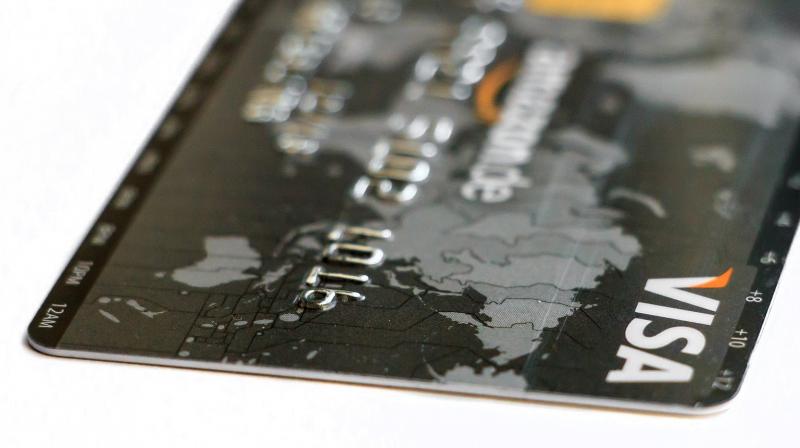Be aware of the charges associated with your credit card
The enormous rise in the usage of credit cards in India has been evident.

With the number of credit card transactions crossing 11.5 crore in a month according to RBI’s data, the enormous rise in the usage of credit cards in India has been evident. Credit cards are convenient and hassle-free mode of payment offering various benefits in the form of discounts, reward points and cash backs. However, there are charges and penalties associated with credit cards that can become hefty if one is not careful. Here is a list:
Joining fee and annual charges- Whenever a customer buys a credit card, the credit card issuers generally charge joining fee along with annual charges which may range anywhere between zero to Rs.30000. These are charged at the time of joining itself and the annual charges are subsequently charged every following year. Some card issuers may charge varying fee depending upon customer’s profile and even waive off this joining fee and annual charges on spending a specific threshold amount through their credit card.
Finance charges- Credit card issuers levy interest charges on any kind of delay in payment of outstanding credit card dues. These charges are referred as finance charges. Depending upon your credit card type and customer’s profile, these finance charges can vary anywhere between 18-48% p.a. However, in case of timely payments of credit card bills on or before due dates won’t attract any finance charges. Only when the customer fails to pay their entire outstanding amount by the due date, this interest rate is charged until the customer clears his outstanding dues.
Late payment fee- This fee is levied on failure to pay even the minimum outstanding balance due in the credit card bill. Quantum of late payment charges usually depends upon the amount outstanding. In most cases, higher your outstanding dues, higher would be your late payment charges. These charges usually range between nil to Rs.950. Customers can avoid this penalty by paying at least the minimum amount due per month, if not the full amount. However, it is always advisable to pay your credit card bills fully and on time, to avoid incurring any such charges or penalties.
Over limit penalty- Every credit card comes with a specific credit limit beyond which one cannot spend without incurring a penalty. In case your spending exceeds this credit limit set by the credit card issuers, you have to incur an over limit fee which can be as high as 2.5-3% of the over limit amount. If you frequently breach your credit limit, you must request your credit card issuer to raise your credit limit to avoid incurring over limit fee. Also, an increase in your credit limit helps in improving your credit score as your credit utilization ratio goes down.
Cash withdrawal/cash advance fee- Cash withdrawals, often referred as cash advances, done through your credit card come with transaction charges in the form of withdrawal fee which is chargeable right from the day you make such transaction till the date of payment. Cash advances, unlike other regular transactions, do not offer the facility of interest free periods. Cash withdrawal through credit cards is an expensive source of cash and should always be your last resort in case of cash requirements.
Other charges- Apart from those mentioned above, credit card issuers levy many more charges on your credit card, which if ignored, can add substantially to your credit card bills and burn a hole in your pocket. Such charges include cheque bouncing charges, cash deposit fee, payment dishonor fee, foreign currency transaction fee and card replacement fee. Ensure that you don’t overlook these charges and compare them before finalizing your credit card.
- By Sahil Arora, VP & Head of Payments Products, Paisabazaar.com

